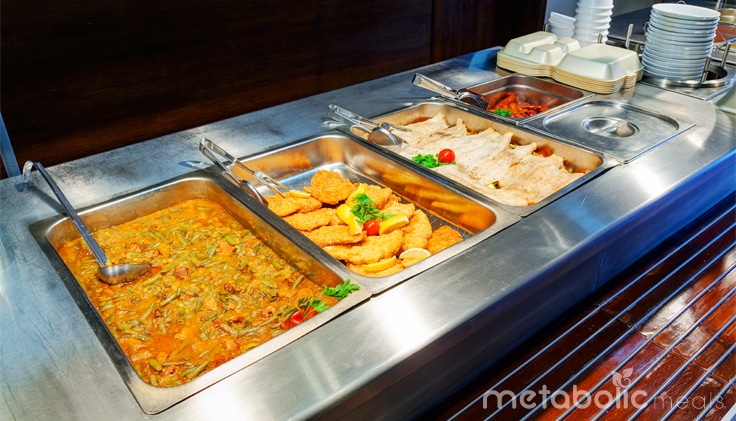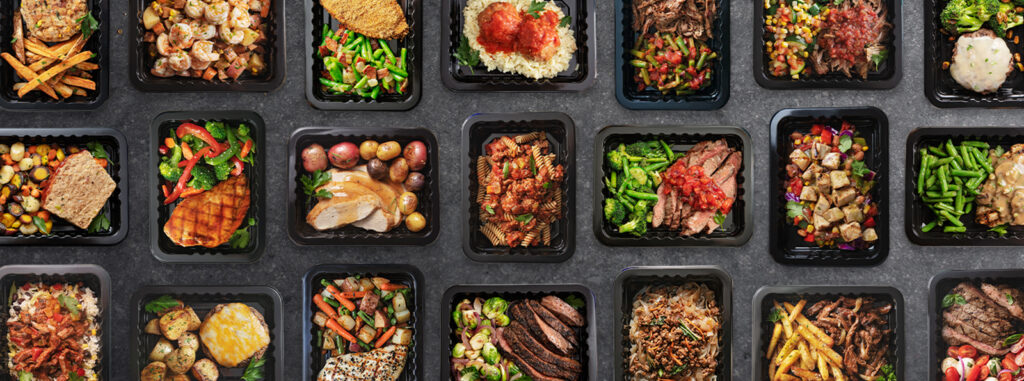The first year or two of college is probably the most stressful time of your life up to that point. That’s one reason so many students gain weight during their freshman year. But it isn’t just stress; it’s trading healthy dinners with protein and vegetables for convenient comfort foods lacking in nutrition.
In fact, along with alcohol consumption, the influx of high-carb, low-protein foods is among the main contributors to the dreaded “Freshman 15.” Another factor is the tendency to stay up late and miss the quality sleep that happens between 10 p.m. and 1 a.m. Even if you make up the deficit by napping during the day, your cortisol levels are negatively impacted by not sleeping straight through the night.
The catch is that high cortisol levels exacerbate poor eating habits. More cortisol means more stress piled on top of the already heavy demands of college life, and this leads many students to seek solace in comfort (i.e., high-carb) foods. This can also lead to hormonal imbalances that slow down your metabolism, multiplying the risks of weight gain as well as diabetes and obesity.
Unfortunately, you aren’t given many good options in college to make a wholesome lifestyle easy. But there are more ways to keep yourself healthy in your new environment and enjoy longer-lasting health benefits than you might realize.
‘I’m OK; My School Serves Healthy Food’
Healthy meal options are a popular selling point for colleges these days. Making malnutrition one less thing to worry about can often tip the balance in their favor. Yet “healthy” can be misleading — the sandwiches and wraps they speak of are often all bread or tortilla and very little meat. The enticing “fruit” smoothies are so sugar-laden that they’re more harmful than healthy. It’s all cheaper for the school, but you miss out on much-needed protein and other essential vitamins and minerals.

The salads aren’t much better. They contain a very small amount of heavily processed, poor quality meat or none at all. If you want your salad with dressing, then add high levels of fat from inflammatory vegetable oils like canola, soybean, or cottonseed. What seems like a healthy salad at first glance can easily be a 700-800 calorie meal with little or no nutritional value.
Limited access to foods that actually fuel your mind and body almost guarantees that you’ll gain weight — but besides the Freshman 15, there are other consequences you should be aware of.
It’s Not Just 15 Pounds

In addition to gaining weight, having an unhealthy meal plan throughout college racks up several other costs. Two such consequences are:
- Poor Productivity and Cognition — Omega 3, vitamin B, zinc, and magnesium are among the most commonly deficient nutrients in unhealthy foods. They’re also linked to mental performance, energy, and drive. Without adequate nutrient levels, your productivity and cognitive performance will drop. Some of these can be found in fortified foods, such as breads and cereals, but these forms aren’t always easily absorbed.
- Poor Nutrition for Life — Habits are developed early, and if you developed healthy eating habits as a child, then you have a good chance of maintaining them throughout college and the rest of your life. It’s just as likely, however, that four years of poor eating throughout college will encourage a similar pattern into adulthood, leading to chronic nutrient deficiency, weight gain, and a host of related health issues.
3 Ways You Can Beat the Freshman 15
Despite the claim of having numerous healthy meal options, your school may actually be limited in the way of truly nutritious options. But the good news is that you can still find plenty of ways to get the nutrition you need without breaking the bank trying to do it. Here are three ways to beat the odds.
1. Supplement your meals with healthy snacks

Nuts, seeds, and natural jerky are just a few nutrient-dense, low-sugar snacks you can carry with you everywhere. These snacks contain a good supply of protein and minerals that help balance blood sugar and keep your energy levels up naturally.
2. Learn what is TRULY healthy

It’s likely that not everything your school serves is bad for you, so take time to learn what options really are healthy versus what they market as healthy. For instance, you can have scrambled eggs and a handful of almonds for breakfast instead of a wheat bagel and parfait. The protein helps raise neurotransmitters like dopamine and acetylcholine, which help provide drive, mental clarity, and a long-lasting energy boost.
3. Have healthy meals delivered

Working and going to school full-time can leave little room for meal preparation, and poor food choices are often linked to convenience. Now, however, you can pick healthy meals and have them delivered directly to you, even on campus. Whether you just need healthier lunch plans or a combination of all meals, having high-quality food on demand greatly increases your chances of sticking to a healthy eating plan.
Being a freshman in college means learning how to handle life on your own, and one of the most important lessons of adulthood is how to take good care of yourself. Don’t let a hectic schedule and limited meal options force you into poor eating habits — they could have consequences far beyond a few extra pounds. Instead, make your well-being a priority, and set yourself up for success long into the future.






